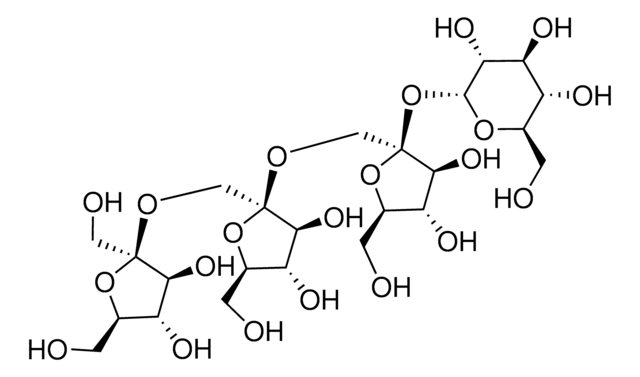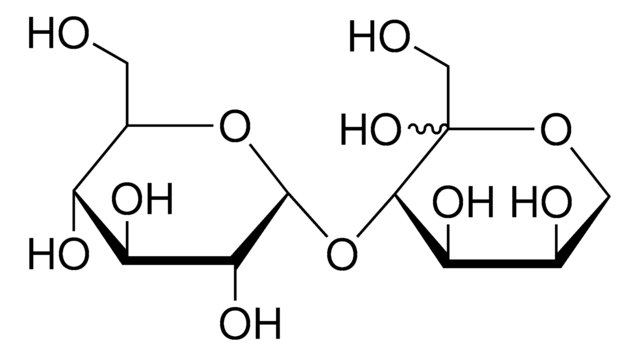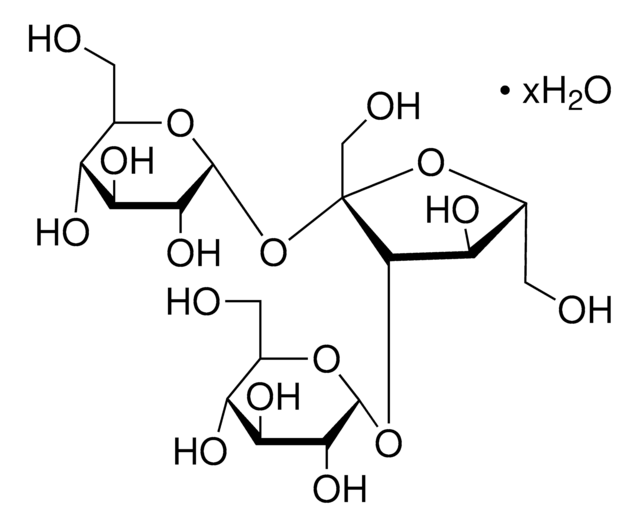72555
1-Kestose
analytical standard
Synonym(s):
β-D-Fruf-(2→1)-β-D-Fruf-(2→1)-α-D-Glup
About This Item
Recommended Products
grade
analytical standard
Quality Level
Assay
≥98.0% (HPLC)
analyte chemical class(es)
oligosaccharides
technique(s)
HPLC: suitable
gas chromatography (GC): suitable
application(s)
food and beverages
format
neat
storage temp.
2-8°C
SMILES string
OC[C@H]1O[C@H](O[C@]3(CO[C@]2(CO)O[C@H](CO)[C@@H](O)[C@@H]2O)O[C@H](CO)[C@@H](O)[C@@H]3O)[C@H](O)[C@@H](O)[C@@H]1O
InChI
1S/C18H32O16/c19-1-6-9(23)12(26)13(27)16(31-6)34-18(15(29)11(25)8(3-21)33-18)5-30-17(4-22)14(28)10(24)7(2-20)32-17/h6-16,19-29H,1-5H2/t6-,7-,8-,9-,10-,11-,12+,13-,14+,15+,16-,17-,18+/m1/s1
InChI key
VAWYEUIPHLMNNF-OESPXIITSA-N
Related Categories
General description
Application
Other Notes
Storage Class Code
11 - Combustible Solids
WGK
WGK 3
Flash Point(F)
Not applicable
Flash Point(C)
Not applicable
Personal Protective Equipment
Choose from one of the most recent versions:
Already Own This Product?
Find documentation for the products that you have recently purchased in the Document Library.
Customers Also Viewed
Our team of scientists has experience in all areas of research including Life Science, Material Science, Chemical Synthesis, Chromatography, Analytical and many others.
Contact Technical Service










